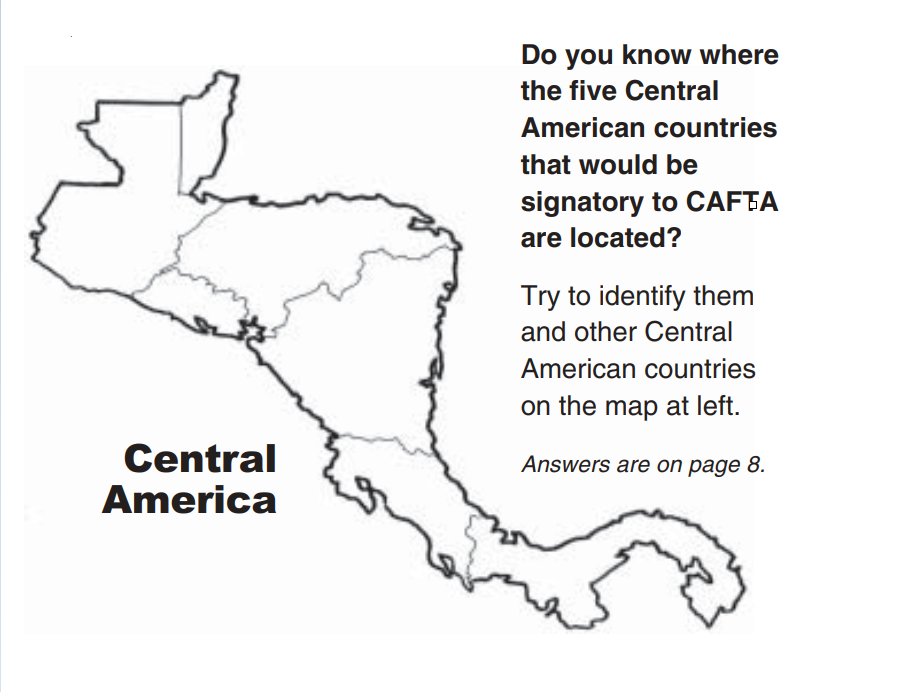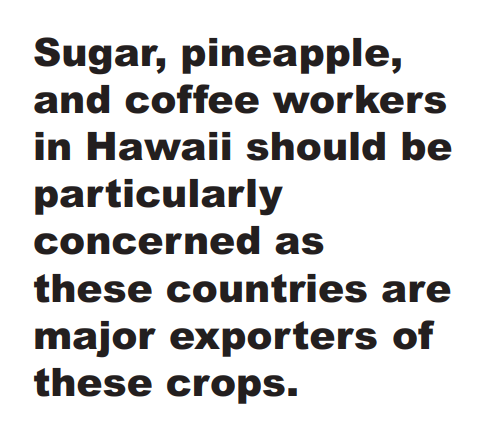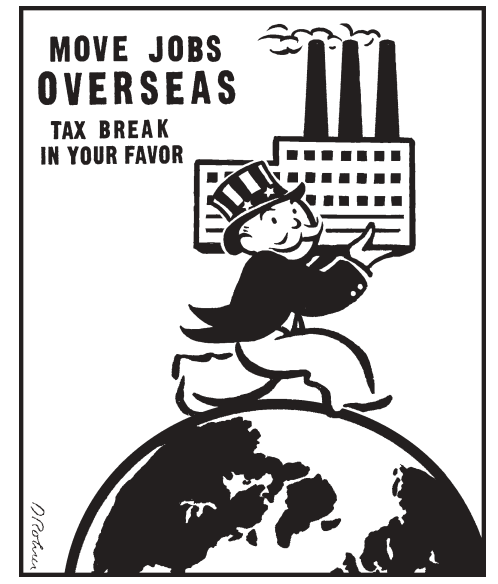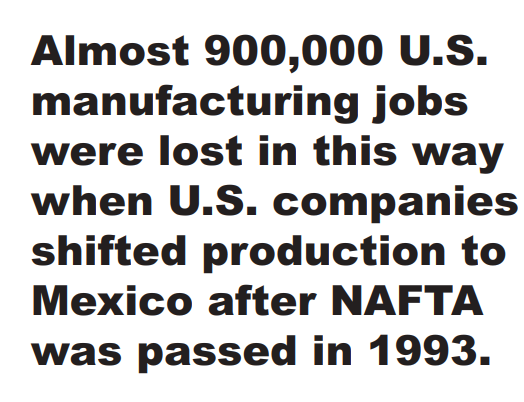WASHINGTON, D.C—President George W. Bush told Congress on Feb. 20, 2004, that he intends to sign the so-called Central American Free Trade Agreement (CAFTA) put together by his Administration. The trade deal is with the countries of Costa Rica, El Salvador, Guatemala, Honduras and Nicaragua.

Sugar, pineapple, and coffee workers in Hawaii should be particularly concerned as these countries are major exporters of these crops. Under CAFTA, the amount of sugar these countries can export to the U.S. will increase by about 2.5% each year for 15 years. The increased quotas from these and other countries is expected to cut the domestic price of U.S. sugar by 50 percent. Coffee and pineapple from these countries will continue to enter the U.S. duty free.
CAFTA must still be approved by Congress, and could be put to a vote in either July or November 2004. The Bush Administration is already making similar trade deals with the Dominican Republic, Panama, Columbia, Peru, Bolivia, Ecuador, Australia, Morocco, Botswana, Lesotho, Namibia, South Africa, Swaziland, Bahrain, and Thailand. Australia and South Africa are major exporters of macadamia nuts.

Outsourcing America
Like other trade deals pushed by the Bush Administration, CAFTA is mainly designed to promote the expansion of U.S. business in these countries. It strengthens banking and business laws to protect the investments and profits of U.S. companies. It enforces U.S. patents, trademarks and trade secrets. It protects the rights of U.S. businessmen who travel to these countries. It requires these countries to open their markets to U.S. goods and services.
The U.S. Trade Representative Central American Trade Agreement (CAFTA) threatens more U.S. jobs WASHINGTON, D.C—President George W. Bush told Congress on Feb. 20, 2004, that he intends to sign the so-called Central American Free Trade Agreement (CAFTA) put together by his Administration. The trade deal is with the countries of Costa Rica, El Salvador, Guatemala, Honduras and Nicaragua. Sugar, pineapple, and coffee workers in Hawaii should be particularly concerned as these countries are major exporters of these crops. described the benefits to investors in this way: “All forms of investment are protected under the Agreement, including enterprises, debt, concessions, contracts and intellectual property…U.S. investors enjoy in almost all circumstances the right to establish, acquire and operate investments in the Central American countries on an equal footing with local investors…”

While property and profits are fully protected, labor rights are not. CAFTA countries are only required to follow their own labor laws. Charges cannot be brought against individual companies or employers, only against governments for sustained and repeated failure to enforce their own laws. If a government is found guilty, it can be fined, but the fine is given back to that government to pay for “appropriate labor…initiatives.” CAFTA would actually weaken labor rights as it replaces existing trade agreements which tie market access to a country’s respect of labor rights.
Destroys jobs In practice, these trade agreements are very one-sided— primarily enriching U.S. multinational corporations at the expense of the people of these countries and workers in the United States.
The Central American countries are supposed to benefit because they get to export their goods and produce to the U.S. duty free. However, U.S. companies with their greater financial resources and existing marketing and distribution networks will end up dominating and controlling the export businesses of these countries. Instead of creating jobs in the United States, manufacturers and food processors will move their plants to Central America to take advantage of low wages. The average wage of a textile worker in Nicaragua is about $.25 an hour.

Almost 900,000 U.S. manufacturing jobs were lost in this way when U.S. companies shifted production to Mexico after NAFTA was passed in 1993. Mexican workers also suffered. While low-wages jobs were created in the Maquiladora region where multinational companies set up factories, this was offset by the loss of 1.3 million jobs in the countryside. “This is yet another jobdestroying free trade agreement that will undermine workers’ rights here and around the world,” AFL-CIO President John J. Sweeney said. “Clearly, this administration has no interest in creating new rules for the global economy which work for working people, both in the United States and in other countries.”
Fair Trade alternative
In February 2004, Kauai Division Director Clayton DelaCruz, Maui Business Agent Joe Franco Jr, and Oahu Longshore chair Nate Lum joined an ILWU delegation in Washington DC to urge Congress to dump CAFTA and reject Present Bush’s idea of one-sided trade deals. The delegation also talked to lawmakers about longshore issues on port security and safety.
